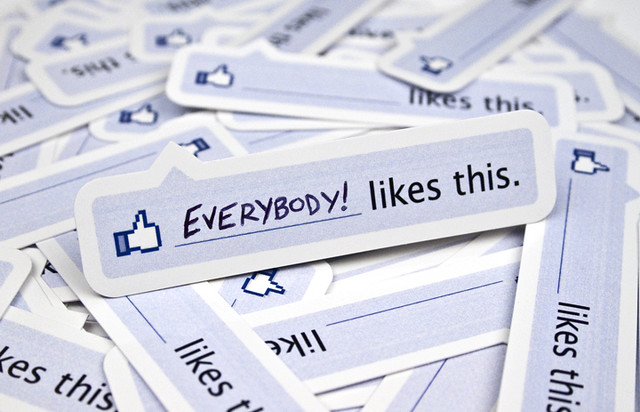
Of course, I mean on Facebook. It's socially acceptable to like yourself as a person, although if you wish to possess 'hip' qualities then it's better you skulk around in a dumpster and sing along to Okkervil River songs. If you want to think yourself funny or attractive or intelligent - feel free. This is a free society, and self-delusion is a widely-accepted form of personal repression. The moment you go on Facebook, however (Facebook is a social website where you go to see how the kid who sat opposite you in French is doing in his quest to become chairman of the student support committee for Winchester), things change. If you show any sign of being fond of yourself, people will immediately form a war commission and judge you guilty of smugness.
Why? Why do we still insist on destroying the egos of the smug and tactless? I'll admit to liking myself on many an occasion, as I make a succession of hilarious jokes and snappy one-liners on Facebook. I am endlessly fascinated by my own life, and want to make sure that as many people as possible know the extent to which I am brilliant. To investigate this further, allow me to look upon the faces of reality TV. When we watch X-Factor or Britain's Got Talent, we watch not for the struggle to be the best (most people get bored by the time of the tenth week, when everyone has started to sound alike and the main discussion is "Dannii Minogue: amazing or irritating?") but instead for the opening stages. Watching people find out they are not good at singing or being talented is where most people find their joy in the show. So what if they look sad? Did you hear that attempt at a High C? Classic!
We don't want people to delude themselves. In this age of high-class media prostitution, we require everyone to be brutally honest about their shortcomings. It may be great news that Angelina Jolie is opening up a new care centre in Africa, but did you see 'The Tourist'? Total bomb, dude! We seem to want that every act of brilliance be countered by an acceptance that there were negative side-effects. We can't be happy about someone doing something good, because their clothes clashed while they did it. Instead of celebrating the poor people who are brave enough to go on stage to pursue their dream of becoming a professional self-welder, we laugh at them for being odd or kooky. But...
Being odd and kooky is a marvellous achievement, worthy of extended merit. Facebook has that 'like' button for a reason - to celebrate individuality and silliness. Would you prefer that there was a "While proud of my achievement today, I accept that there were several drawbacks to my success which will affect me in the long-term" button? Do you want everything to conclude with a downbeat tone? Surely it's more amazing that we can say something stupid and be proud of it, aware that we're being idiots but leaving that as a subtext. I applied to be a nuclear advisor a few days ago, a job I will never get because I have no qualifications whatsoever. But it was FUN to do it! And heck, I told everyone on Facebook about my hilarious attitude towards job-hunting, and I liked the bejewelled hell out of it.

To summarise, when I 'like' one of my own posts on Facebook, it is an affirmation that I am not only brilliant, hilarious, handsome and clever... but the most individual kook you ever saw. Basically, I'm the greatest person ever. Feel free to write comments below which confirm this summary. I'll read them at my leisure, before reposting the best ones on Facebook. And 'like' them, of course.
You are so wonderful, that after 17 days, not one person has left a comment saying how wonderful you are.
ReplyDeleteI strongly disagree.
ReplyDeleteI 'like' this blog entry.
ReplyDelete